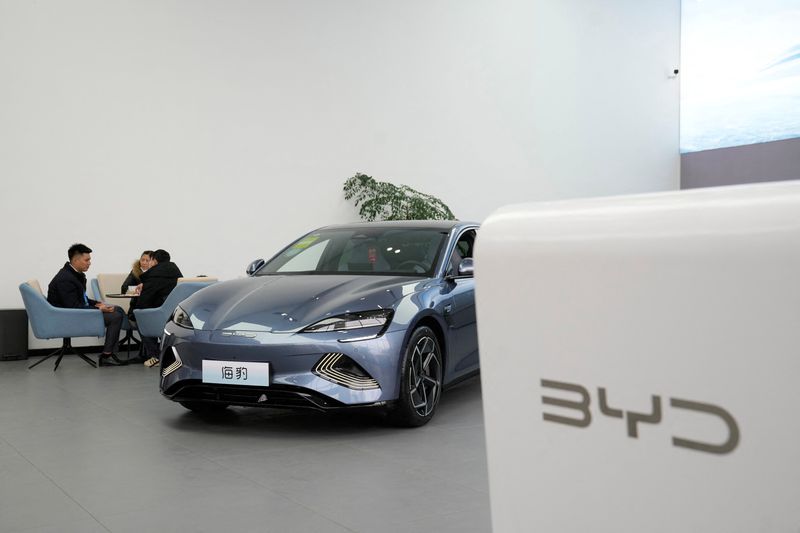SEOUL (Reuters) - China's BYD Co (SZ:002594) Ltd and South Korea's KG Mobility Co Ltd are in talks to jointly build an electric vehicle (EV) battery plant in South Korea, a source told Reuters on Wednesday.
The Chinese battery and EV maker and the South Korean automaker hope to secure stable battery supplies through the venture, said the source with direct knowledge of the matter, declining to be identified due to the sensitivity of the matter.
Bloomberg said the factory aims to start mass production in January 2025, citing unnamed industry sources.
BYD - the world's No.2 EV battery maker - and KG Mobility - formerly known as SsangYong Motor Co - did not immediately respond to Reuters requests for comment.
Their venture would be the first joint factory between a Chinese battery cell maker and South Korean carmaker in South Korea.
Analysts said BYD's entrance to South Korea, home to the world's three big battery producers - LG Energy Solution, Samsung (KS:005930) SDI and SK On - could help expand its customer base.
"It is indeed a significant event, a major cell maker like BYD having production capacity in South Korea, where local cell makers have not yet mastered technology to offer low-cost batteries BYD could offer to automakers," said Kang Dong-jin, an analyst at Hyundai Motor (OTC:HYMTF) Securities.
BYD specializes in lithium-iron-phosphate (LFP) batteries, something the South Korean battery trio do not yet mass produce. Their focus is on nickel cobalt batteries.
Chinese battery materials firms are ramping up investment in South Korea, announcing projects worth billions of dollars this year to try to circumvent U.S. electric vehicle (EV) tax credit rules aimed at lowering reliance on Chinese supply chains.

The U.S. Inflation Reduction Act (IRA) is designed to wean the United States off the Chinese supply chain for EVs. It requires at least 40% of the value of critical minerals used in an auto battery to be sourced from the United States or a free trade partner to qualify for a $3,750 tax credit per vehicle. South Korea has a free-trade agreement with the United States.
Ningbo Ronbay New Energy Technology, China's leading materials maker for EV batteries, said last week that it had decided to expand cathode materials production capacity at its South Korea facility to tackle the U.S. EV tax credit rules.